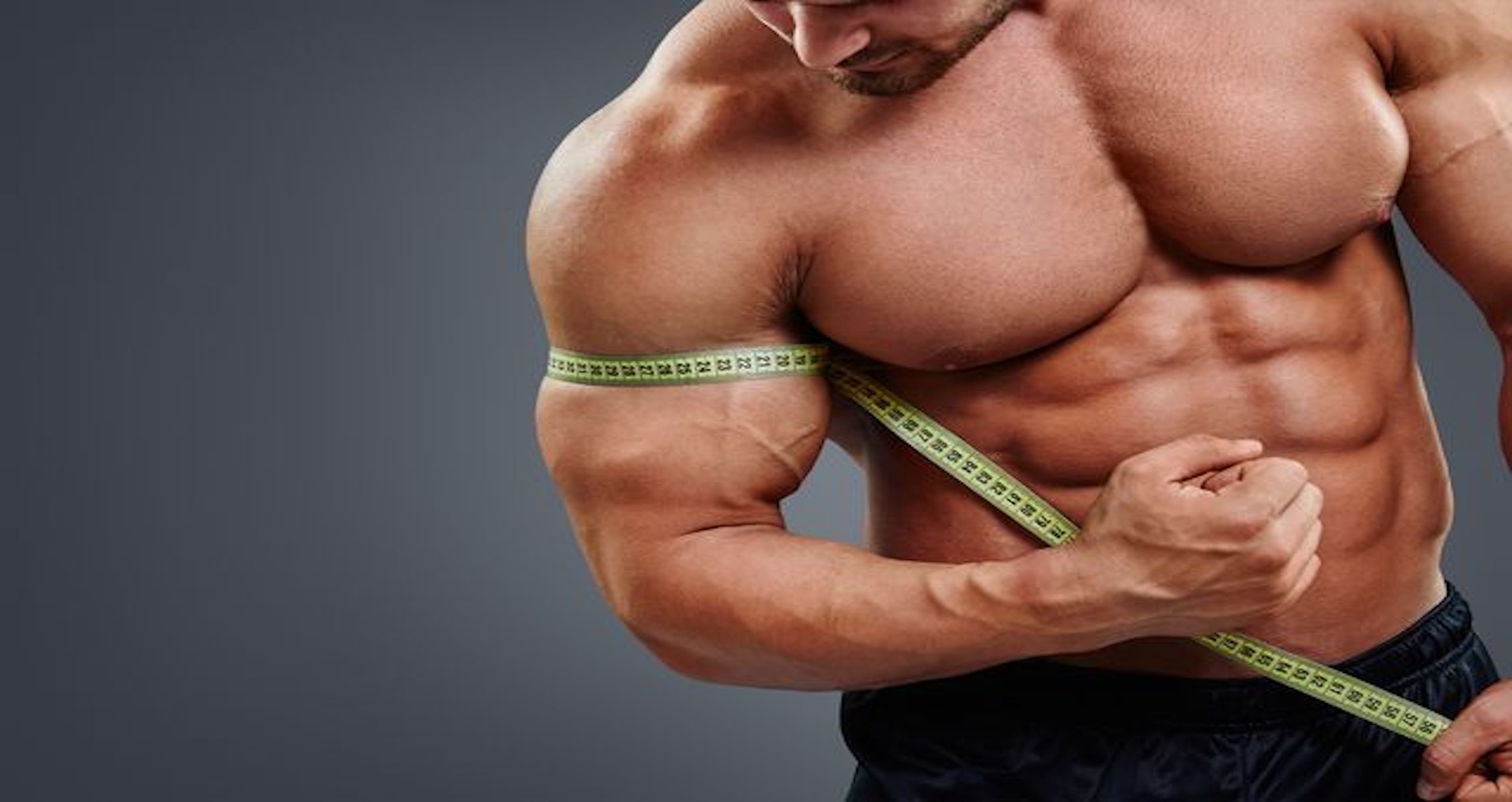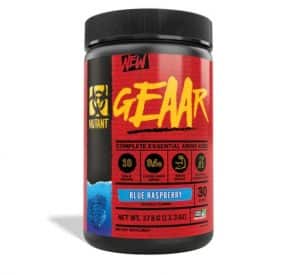Take a break from lifting once in awhile.
While training is fun and chances are you want to lift more and more, taking a deload week can be beneficial for your workout progress. A deload week doesn’t necessarily mean you have to take off from the gym, but can be when you back off the intensity and volume you do when you work out. Deload weeks won’t take away from your gains, but instead will help you build muscle and is a form of active recovery.
The question is: How often should you take a deload week?
The Generation Iron team has broken down everything you need to know about a deload week, including what they are, when to take them, and insight from a professional bodybuilder.
Benefits of a Deload Week
It might be time to consider incorporating a deload week into your routine when:
- You feel overly tired and sore
- You are not getting any stronger
- You are not seeing any changes in your physique
Not only does a deload week give your body a chance for active recovery, but it can also improve your overall workout performance (1). During this time frame, you reduce the intensity and volume of your workouts, allowing your body to rest and recuperate for one full workout week. The exercises will still be the same; the weight and volume you do are different (more on that later).
This break not only helps prevent injury but can also lead to increased strength and muscle growth. Remember, rest is as important as exercise to achieve your fitness goals.
Without proper rest, you’ll be at an increased risk of experiencing symptoms of overtraining, such as fatigue and muscle aches, leading to burnout and muscle growth stall-out. Overtraining stems from doing too much volume than your body can handle, whether too many days in the gym, too many exercises, or too many sets. It can also stem from too many weeks of working out at a high intensity – that’s where adding a deload week to your routine can help (2).
Contrary to the belief that doing this may improve your physique, as a natural lifter, often less is more. Some benefits you’ll experience from incorporating deload weeks include:
- Gain strength and muscle
- Faster recovery
- Improve joint health
- Reduce stress
How and When Do You Implement Deload Weeks?
Listening to your body is critical in determining the time to take a deload week. For example, if you’ve plateaued in the gym, are suffering from delayed onset muscle soreness (DOMS), or are chronically tired, it may be time to back off your workload and intensity.
Furthermore, the higher your intensity and volume are, the more often you’ll want to take a deload week. For example, if you lift weights five to six days a week, you’ll want to include more deload weeks than only strength training two to three days a week. In addition, if you’re performing six to eight exercises and doing four to five sets, you’ll also want to take a deload week more often than doing four to five exercises for two to three sets. Because lifting weights less and doing fewer exercises and sets will allocate more time to recovery.
Although, a good general rule of thumb is to add them to your routine at least once every 12 weeks.
To practice deload weeks, you’ll want to back off the volume you do, combined with doing workouts at a lower intensity. Unfortunately, there’s no carved-in-stone way to do this. However, we recommend axing each set by 1-2 per exercise and using a weight of 40-60% of what you would typically lift.
Here’s an example of how that may look for a chest and triceps workout:
Normal Chest and Triceps Workout
- Barbell Bench Press 3 sets x 8 reps
- Dumbbell Incline Bench Press 3 sets x 10 reps
- Cable Flyes 2 sets x 12 reps
- Cable Triceps Extension 3 sets x 12 reps
- Dumbbell Triceps Extension 2 sets x 12 reps
Deload Week Chest and Triceps Workout
- Barbell Bench Press 2 sets x 8 reps
- Dumbbell Incline Bench Press 2 sets x 10 reps
- Cable Flyes 1 sets x 12 reps
- Cable Triceps Extension 2 sets x 12 reps
- Dumbbell Triceps Extension 1 sets x 12 reps
As you can see, the exercises and reps are the same; however, the number of sets performed during the deload week is one less. In addition, you’ll want to reduce the weight to 40-60%, as mentioned above. So, for example, if a lifter is doing three sets of eight reps with 200 pounds on bench press during a normal lifting week, they’ll want to reduce the weight to about 115 pounds for their deload week.
This may seem counterproductive, but using lighter weights will give your muscles a break and allow them a chance to recover. Furthermore, using lighter weights will keep your muscles working without taking a break from lifting altogether. And it’ll give you the chance to work on your technique. After a week of doing a deload week, you should return feeling refreshed and stronger the following week.
A Natural Bodybuilder’s Perspective on Deloads
International Natural Bodybuilding Association (INBA)/Professional Natural Bodybuilding Association (PNBA) natural bodybuilder Michael Boyle shares his experience on when you should reduce your workout intensity and volume.
Michael Boyle is a 2x British natural bodybuilding champion. And he earned a bronze medal in the Men’s Bodybuilding Masters division at 2021 Natural Olympia – he plans to win it all!
Boyle shared his perspective on social media regarding the best time to take a deload week. According to Michael Boyle:
“There is no rules when to take a deload week. I’m finding it’s every 3rd week for me. Listen to your body. Talk to your coach. Find what works for you.”
Boyle acknowledged that he just hit a new personal best on deadlifts after coming off a deload week. You can see Boyle deadlifting below:
View this post on Instagram
Michael Boyle has found that taking a deload week every third week works best for him. Of course, as he acknowledges, this may not be the case for everyone. Some people will only want to once every 6-12 weeks. Remember, he is a professional bodybuilder, so his training volume and adaptation to the volume are much higher than most.
As a professional bodybuilder like Boyle, he’ll train with high-intensity and high-volume workouts, so he benefits from taking a deload week often. On the other hand, a regular everyday gym-goer may not need to deload as often because their volume and intensity will be lower than a top natural bodybuilder’s training regimen.
Naturals Vs. Enhanced Lifters
Natural bodybuilders can’t exploit steroids unless they want to be banned from competing. Their bodies can’t do as much volume and intensity as consistently as enhanced lifters. That’s because drugs such as steroids allow your body to do more than it can alone. Steroid users won’t need as much rest as a natural lifter. Therefore, as a natural lifter, it’ll be even more imperative that you incorporate deload weeks into your weightlifting routine.
The Best Supplement for Recovering
MUTANT GEAAR is one of the better amino acid supplements on the market. Not only do they contain all 9 essential amino acids that your body can’t produce on its own, but they also have arginine, which is critical to include to optimize muscle-building and recovery which is great because of how it plays an important role in the metabolism of an organism.
MUTANT GEAAR is a superior amino acid product on the market, as it contains literally everything you need in an amino acid supplement. It has the 9 essential amino acids, plus arginine and 4g of leucine, designed to pack massive amounts of muscle on your frame — with no synthetic colors or flavors.
Check out the full review of MUTANT GEAAR here.
Wrap Up
Deload weeks can help you hit new records on lifts and help your body recover. Unfortunately, there is no standard time to add a deload week. It’s best to listen to your body and do them periodically. Although, we recommend incorporating them at least once every 12 weeks.
Follow us on Instagram, Facebook, and Twitter for more workout tips and bodybuilders’ fitness insights!
References
- Vann, C. G., Haun, C. T., Osburn, S. C., Romero, M. A., Roberson, P. A., Mumford, P. W., Mobley, C. B., Holmes, H. M., Fox, C. D., Young, K. C., & Roberts, M. D. (2021). Molecular Differences in Skeletal Muscle After 1 Week of Active vs. Passive Recovery From High-Volume Resistance Training. Journal of strength and conditioning research, 35(8), 2102–2113. https://doi.org/10.1519/JSC.0000000000004071
- Kreher J. B. (2016). Diagnosis and prevention of overtraining syndrome: an opinion on education strategies. Open access journal of sports medicine, 7, 115–122. https://doi.org/10.2147/OAJSM.S91657










